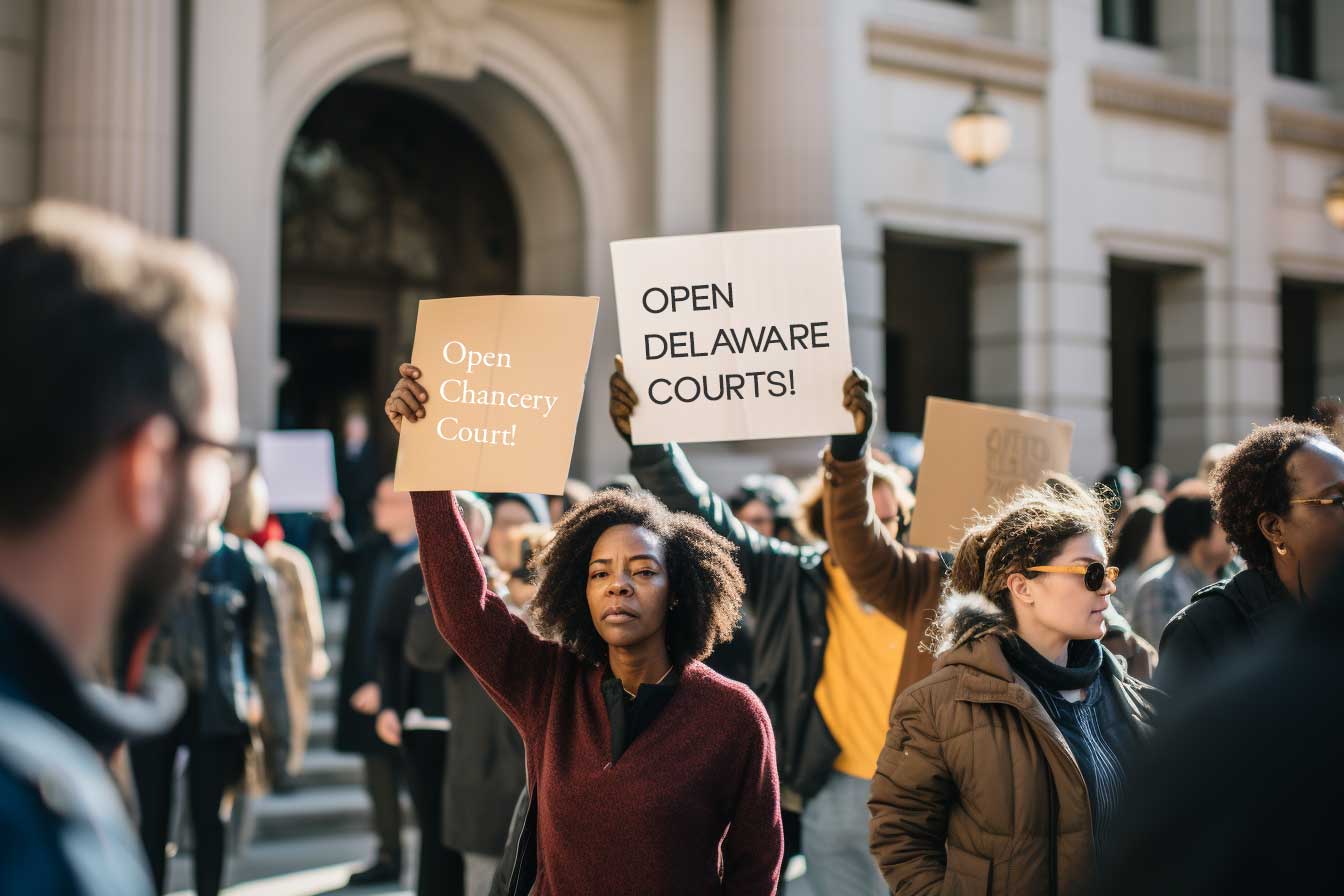OPINION
Dear Friends,
Last week I wrote that the Trump Trials should be broadcast and that our Delaware Courts, including the Chancery Court, should be open too. Many of you wrote in asking, why aren’t our courtrooms open to all of us? It’s 2023, why can’t this be done?
I believe it is time for the Delaware Courts and our Chancery Court to come into the current century. People have a right to know what’s going on. No more secrecy. No more Good Old Boys running the show behind a curtain. Delaware Courts need to update their outdated policy.
When Googling this, I found the following: “Nearly every state has provisions to allow the media to use video cameras and microphones in courtrooms in some circumstances.”
I am a reasonable man, folks. When there is a good reason to close a trial, such as to protect a jury or circumstances of an extremely sensitive nature, then make an exception, of course. Regardless, a closed court system should not be the rule in Delaware, especially in the Chancery Court which often involves millions of dollars in many high profile cases. It should be televised.
Delaware is the most popular State for incorporating, which means the decisions that come out of the Delaware Chancery play a huge role in how Corporate America operates which ultimately has an impact on the lives of millions of Americans. Yet those deliberations and rulings are kept out of the public eye. Why is this the case? What does Delaware have to hide? Allowing cameras in the Courtrooms is the hallmark of a transparent democracy and Delaware should be leading the way and not lagging behind.
As I see it, to avoid what happened in the TransPerfect case from happening again with former Chancellor Andre Bouchard and former Supreme Court Justice Leo Strine’s unprecedented rulings, which in my opinion, appeared to involve conflicts of interest and an attempt at a grotesque taking in violation of the 5th Amendment (clearly presented in her dissenting opinion by Justice Karen Vallihura), and an obvious prevention from public view of an apparent continuous drain of millions of dollars by a former cohort and business partner of Bouchard’s appointed custodian, Robert Pincus. It should be noted that both Bouchard and Strine quit before their appointed terms were up. I certainly wonder if all the Chancery Court actions had been televised for public view would the same rulings and legal activity have been the same?
See parts of the Delaware Online story below to better understand this. I’ll write more. Please keep your feedback coming in on this. It is always welcome and appreciated.
Respectfully Yours,
JUDSON Bennett-Coastal Network
Fox News anchors may take the stand in Delaware, but you can’t watch it live. Here’s why
It has been nearly three decades since Americans were glued to their television sets as defense counsel for O.J. Simpson told jurors, “If (the glove) don’t fit, you must acquit.”
Last year, footage of testimony from the defamation trial involving actors Johnny Depp and Amber Heard divisively forced its way in front of a massive audience on social media. And just a month ago, millions tuned in to see testimony in actress Gwyneth Paltrow’s trial over a skiing collision.
…
Delaware court tradition of no cameras
The ruling is in line with judicial tradition in Delaware.
Only the state’s Supreme Court hosts a video livestream of its proceedings. Those are typically focused legal debates by attorneys that do not involve the presentation of evidence or jurors. Nearly 20 years ago, the courts briefly engaged a pilot program to allow cameras in civil proceedings that did not involve a jury.
…
As a general rule, Delaware does not allow cameras in its courtrooms, and audio recording of court proceedings is strictly prohibited.
Those strict protections sometimes bleed into other aspects of public access. Members of the public are turned away from most state courts when they try to enter with their cellphones. In recent times, officials for Delaware’s Superior Court have delayed or sometimes outright rejected public access to evidentiary exhibits presented in murder trials, newsworthy items higher courts have ruled should be public.

